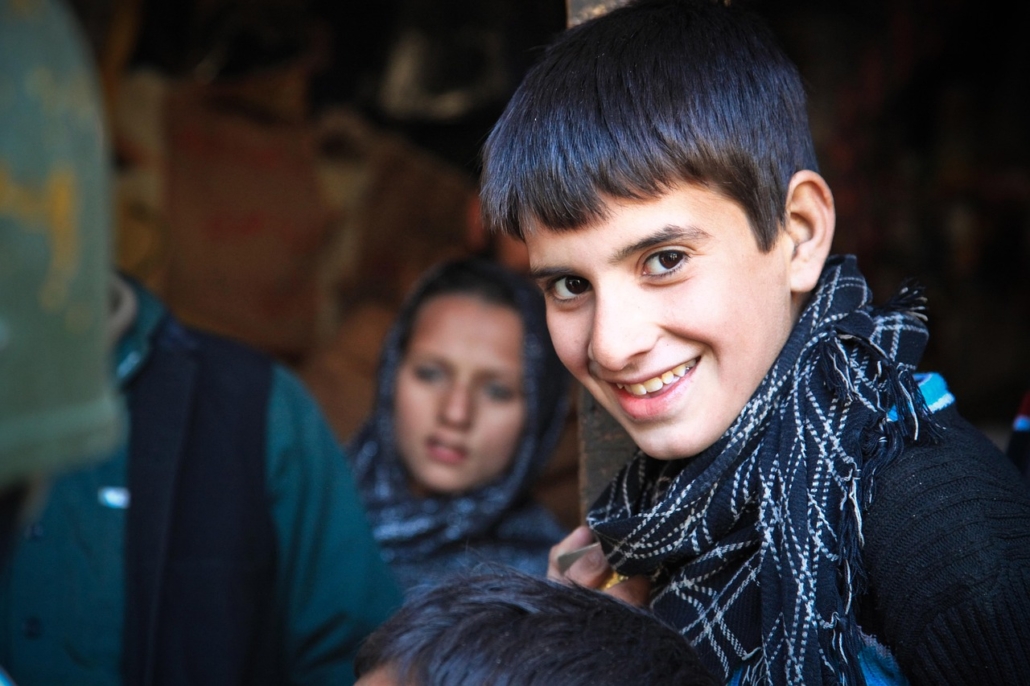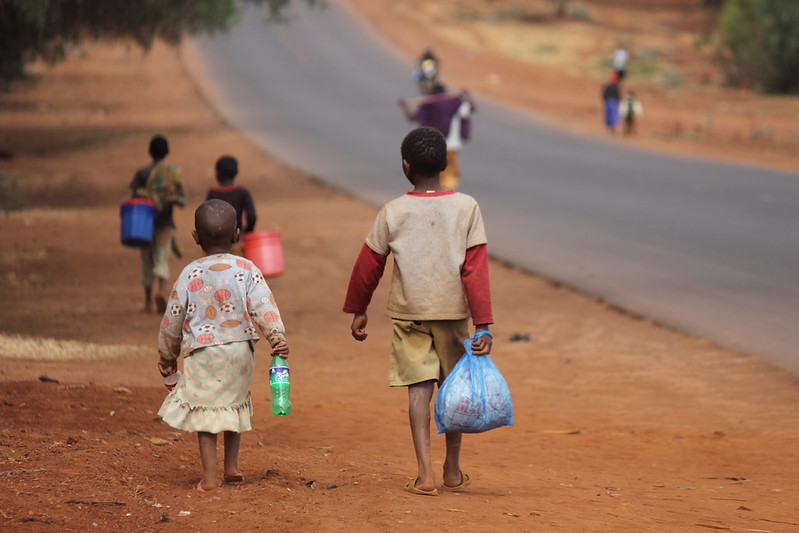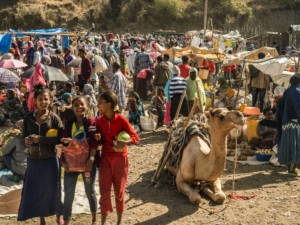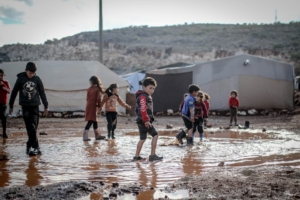 A small, southeastern European country, Montenegro declared independence from Serbia on June 3, 2006. Native Montenegrins form only 41% of the population with Serbs, Bosnians, Albanians and Russians from neighboring countries forming the rest of the population. With a long Adriatic coastline boasting 72 km of beaches and well-preserved ancient towns, tourism remains a key industry, welcoming 2.1 million visitors in 2022. Other main sectors include steel, aluminium, agriculture and consumer goods. Despite the country’s success in various industries, poverty is a problem that five charities operating in Montenegro are attempting to address.
A small, southeastern European country, Montenegro declared independence from Serbia on June 3, 2006. Native Montenegrins form only 41% of the population with Serbs, Bosnians, Albanians and Russians from neighboring countries forming the rest of the population. With a long Adriatic coastline boasting 72 km of beaches and well-preserved ancient towns, tourism remains a key industry, welcoming 2.1 million visitors in 2022. Other main sectors include steel, aluminium, agriculture and consumer goods. Despite the country’s success in various industries, poverty is a problem that five charities operating in Montenegro are attempting to address.
About Poverty in Montenegro
According to the 2023/2024 UN Human Development report, Montenegro retains its position as a country of very high human development for the seventh year in a row. Life expectancy, education and income have all seen significant growth, with the gross national income per capita increasing by 64.5% and the Human Development Index rising by 12.7% between 2003 and 2022. However, despite economic progress, income inequality and poverty persist ― particularly in northern and rural areas ― significantly impacting displaced persons, ethnic minorities and children in institutional care. As of 2022, 17.2% of Montenegro’s population live below the upper-middle-income poverty line of $6.85 per day. Children are particularly affected, with 28.4% at risk of poverty in 2022, a slight improvement from 30.5% in 2021.
To alleviate these issues related to poverty in Montenegro whilst meeting development goals, UNDP resident representative Ekaterina Paniklova stresses the importance of Montenegro focusing on sustainable development, social protection and promoting innovation. Charities play a crucial role in bridging the gap between development goals and vulnerable communities affected by poverty. Here are five charities operating in Montenegro aiming to support communities affected by poverty:
1. Pristanište Foundation
The first of the charities operating in Montenegro is The Pristanište Foundation. Founded in March 2022, The Pristanište Foundation is a volunteering community supporting Ukrainians and other displaced persons arriving in Montenegro. Its Sleep in Silence program provides free temporary accommodation in Budva, basic necessities, SIM cards and emergency financial assistance to groups seeking aid. The foundation has helped more than 1,800 individuals, including 426 children, and is the only house in Montenegro accepting persons with disabilities. Individuals aided by the foundation express feeling “as if [they] have been transported to another reality, which delights with incredible views, positive emotions, and sincere feelings.”
In addition to material aid, the program offers psychological support through consultations and group sessions, aimed at reducing stress and trauma, and promoting resilience. Led by volunteer professionals, including clinical psychologist and psychotherapist Anna Sergeeva, this initiative has supported nearly 200 individuals since its launch, and plans are currently underway to expand the service. By offering free accommodation, necessities and psychosocial support, the foundation not only addresses the immediate needs of displaced persons but also mitigates their risk of falling into poverty ― a reality many migrants face upon arrival in a new country.
2. Red Cross of Montenegro
Founded in 1875, the Red Cross of Montenegro is a voluntary humanitarian organization involved in disaster response, health care, social support and community development. It offers training and equipment for disaster preparedness, provides emergency aid, runs flood resilience programs in vulnerable areas like Zeta Municipality and maintains a tracing service to reunite families separated by disaster.
The Red Cross Montenegro has been pivotal in supporting migrants, asylum seekers and refugees within the country. The organization provides them with food, clothing, hygiene kits, psychosocial care and help accessing health care through community centers near reception facilities, aiming to aid social and economic integration and prevent migrants falling into poverty. As of January 2023, the Red Cross of Montenegro directly supported 3,012 Ukrainian refugees fleeing the war, distributing 2,560 food parcels and hygiene kits and 1,580 sets of clothing, organizing 138 psychosocial support workshops and conducting 197 Montenegrin language classes.
Furthermore, the organization’s youth programs include academic support, peer-led education on topics like HIV/AIDS and intergenerational projects that foster community bonds. The organization also supports older adults and persons with disabilities through home care services and community programs.
Beyond ground-level activities, the Red Cross actively collaborates on national strategies around climate resilience and humanitarian innovation, aiming to integrate climate concerns into future disaster preparedness work. The organization’s Global Climate Resilience Program, designed to scale-up locally-led, climate-smart disaster risk reduction, is projected to reach 500 million people by 2027. These strategies are essential in Montenegro, where rural and low-income communities suffer the greatest impacts from floods, often exacerbating cycles of poverty.
3. FORS Montenegro
Founded in 2006, the Foundation for the Development of Northern Montenegro (FORS) works on regional development, environmental protection and civil society initiatives. Partnering with local authorities and institutions, it promotes environmental protection through sustainable agriculture, tourism and disaster risk reduction.
One notable initiative that launched in April 2018 is Disaster do not know Borders, which aims to enhance disaster risk reduction capacities in Montenegro and Albania, with a particular focus on flood protection. The project, funded by the European Union through the Cross-Border Cooperation Program Montenegro-Albania 2014-2020, had a total budget of €483,538.35. Main activities within the project included equipment procurement, training emergency responders, updating databases on floods in the region of Shkodra Lake and running educational workshops for school children.
Over the two-year course of the initiative, more than 100 local protection and rescue personnel from Montenegro and Albania received training in flood response, swift water rescue, and Geographic Information System (GIS) mapping. Educational initiatives engaged more than 1,000 primary and secondary students in workshops and drawing competitions focused on flood risks and disaster preparedness. Such outreach not only raises awareness, but empowers youth in economically disadvantaged regions where poor infrastructure and limited services make recovery from natural disasters more difficult. Concluding in April 2020, the initiative reached approximately 30,000 citizens.
4. Riznica Mladosti
Riznica Mladosti, established in 2010, supports the only orphanage in Montenegro, Djeciji Dom Mladost in Bljela. While the orphanage receives government funding, the charity enhances educational outcomes and life skills for children with special needs who cannot attend regular schools.
Working closely with the orphanage’s staff, the organization provides one-to-one sessions with the children that promote academic development and emotional well-being. This project has seen not only a significant improvement in academic results for the children, but also improved self-sufficiency and ability to access employment when they leave the orphanage. In addition to education, activities like community bazaars help the children develop social and interpersonal skills. Significant improvements in academic results and emotional well-being are critical components in breaking the cycle of poverty for children growing up without stable family support or access to mainstream educational opportunities.
5. World Vision Montenegro
Originally founded as a relief project in 1998 following the Kosovo conflict, World Vision has evolved into a wide-reaching development agency in Montenegro, attending to the physical, social, psychological and financial needs of the poorest sectors of the Yugoslav population. Its primary goal is the sustained well-being of vulnerable children, addressing interconnected challenges like education, clean water, nutrition, disaster management, gender equality and social inclusion and urbanization. By investing in nutrition, clean water and financial inclusion, World Vision directly addresses some root causes of poverty.
As of 2023, an estimated 113,800 individuals have been reached worldwide through World Vision innovation projects. AgroInvest, a partner of World Vision, had loaned approximately $23,921,687 to 12,646 individuals as of 2011, allowing for radically increased milk production, cattle breeding and greenhouse maintenance to alleviate food insecurity. These loans enable low-income families to achieve self-sufficiency, especially in underdeveloped rural areas. Both World Vision and AgroInvest remain highly active in Montenegro to this day.
Looking Forward
Despite its impressive development, Montenegro continues to face challenges such as regional inequality, social exclusion and vulnerability to changing weather patterns. These five charities operating in Montenegro ― ranging from long-established institutions to grassroots initiatives ― offer targeted, community-based support that directly combats poverty, promotes inclusion and strengthens long-term resilience. As the country continues to grow, charities operating in Montenegro offer hope and practical support for a more equitable, inclusive and sustainable future.
– Holly McArthur
Holly is based in Somerset, UK and focuses on Good News and Global Health for The Borgen Project.
Photo: Pixabay
 Tanzania is acknowledged for its rich national parks like Ngorongoro Crater and Serengeti. However, beyond its scenic landscapes, many citizens face significant economic hardship. As populations increase, the poverty rates also increase. In 2011, about 12.3 million Tanzanians lived in vulnerable conditions. By 2018, that number rose to 14 million. Still, recent data reveal progress—Zanzibar, for instance, recorded a 4.7% drop in poverty from 30.4% in 2014–15 to 25.7% in 2019–20. Charitable organizations have played a vital role in building community resilience and expanding access to essential services.
Tanzania is acknowledged for its rich national parks like Ngorongoro Crater and Serengeti. However, beyond its scenic landscapes, many citizens face significant economic hardship. As populations increase, the poverty rates also increase. In 2011, about 12.3 million Tanzanians lived in vulnerable conditions. By 2018, that number rose to 14 million. Still, recent data reveal progress—Zanzibar, for instance, recorded a 4.7% drop in poverty from 30.4% in 2014–15 to 25.7% in 2019–20. Charitable organizations have played a vital role in building community resilience and expanding access to essential services.
 Sacha Baron Cohen, born in 1970s London, is a
Sacha Baron Cohen, born in 1970s London, is a 






